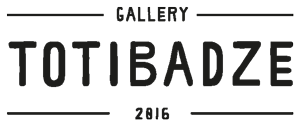All exhibitions
 Woven
Woven
March 15 - May 12, 2024
Curator: Tatiana Rykova
Since ancient times, thread and fabric weaving have been believed to possess magical properties and, as such, have been featured in numerous myths and legends. The likes of Ariadne's thread and Penelope weaving a shroud as she waited for Odysseus to return from his travels come to mind. Initially used only for the production of clothing and household items, textiles soon enough attracted the attention of artists; hence the embellished folk costumes and the emergence of highly decorative tapestries.
Over time, textile arts evolved into a full-blooded art form, with its practitioners taking full advantage of the versatile medium’s potential. In recent decades, artistic textiles have transcended the confines of decorative arts to become a very contemporary medium, partly because they are no longer viewed merely as a means but also as a message, a subject worth exploring in its own right. Traditional techniques of weaving, embroidery, and collage are seamlessly combined with technological experiments in the works of artists, who add new layers of meaning to familiar images.
The exhibition at the Ekaterina Cultural Foundation is made up of four sections, each highlighting various forms of textile used in works of art created in the late 20th and early 21st century, with a few earlier pieces also on display.
The softness and lightness of fabric, fluttering in the breeze, entice artists to use textiles as the support for their works. In the works of Maria Arendt, Lisa Olshanskaya, and Asya Marakulina, weightless and dynamic textile fabrics are combined with expressly monochrome embroidery, further accentuating the fabric's texture.
Some artists explore the features and textures of textiles. This section of the exhibition celebrates the technique of collage: by stitching together diverse pieces of fabric of varying textures and colors, artists create compositions rife with original connotations. Thus, the exhibition features a landmark work by Lidia Masterkova titled Composition. Priluky, a collage made of textile fragments. Vitaliy Tyurlik's textile works focus on improvisation and spontaneous creativity. His crowded compositions are sewn from numerous small pieces of cast-off fabric, giving it a new lease of life. Anya Grositskaya drew inspiration from optical illusions known as pareidolia, cutting out fabric shapes she once noticed in melting snow, trees, cracks, and tangled wires. Sewn together, they transformed into a spacious garden, whose every element is of the essence.
The word fabric has several meanings: it stands not only for cloth but also for an underlying structure, framework, and structural material. One of the most multifarious sections of the exhibition is concerned with works in which traditional techniques and methods of working with textiles meet an innovative approach to the material. Nadya Zubareva weaves openwork sculptures from coarse metal mesh. The fragility of the construction and the monumental scale of the work contribute to the creation of remarkably accurate and paradoxical figures.
Other artists turn to traditional forms of working with textiles, creating vivid and sometimes ironic compositions. For example, the pattern on the TV Goodbye carpet, designed by Yulia Markos, depicts the test card that was broadcast by Soviet television after the daily programs ended. In Underwater, Evgenia Evart addresses burning environmental issues: a fish woven from linen and cotton, surrounded by waves made of polyethylene and other plastic fish, symbolizes the fragility of the ecosystem. The shimmering airy texture of the fabric is crucial for the works of Mila Vvedenskaya, who creates a space where the medium is inseparable from the message.
The final section of the exhibition includes works of mixed media art demonstrating the enormous potential of textiles in the realm of contemporary art. Site-specific objects are some of the most striking works on display here. The exhibition features Alexandra Ostrovskaya's object Point of Support, originally made for the Milovid Pavilion in Tsaritsyno Park.
The division of the exhibition into sections is somewhat arbitrary. Nevertheless, according to the curator, the exhibition space, woven from pieces by various artists, enables viewers to draw unexpected parallels between the works and offers a fresh perspective on the exhibits.
Curator-led guided tours, workshops, and artist talks are set to be held as part of the exhibition.

































































